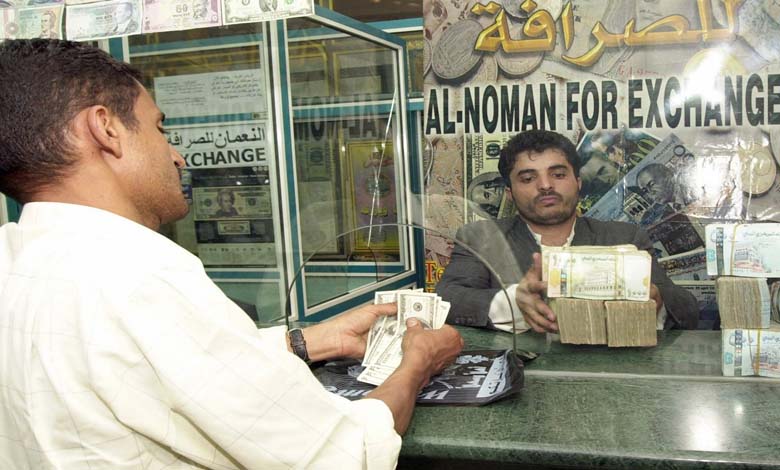In this manner, the Houthis employed exchange companies

A new economic report sheds light on the extortion and looting by the Houthi gang loyal to Iran of the banking sector in Yemen.
The report, initiated by “Regain Yemen” under the title “Exchange: A War Tool,” focuses on the Houthis‘ violations against exchange dealers and their control over the exchange sector, compiling a blacklist that includes prominent exchange companies and shops affiliated with the Iranian-backed rebel militias. The report revealed the Houthi gang’s control over exchange companies and their resort to various methods to tighten control over these companies and utilize them for their own benefit, following the destruction of Yemeni banks. It also exposed the involvement of Houthi militia leader Abdul-Malik al-Houthi and spokesperson Mohammed Abdul Salam in money laundering and financing terrorist operations for other militias in the region.
According to the report, the Houthis forced exchange companies, which were operating prior to the coup, to conduct their financial transactions away from any international or local oversight. They assigned these companies several financial tasks, including supplying tributes, taxes, disbursing salaries to their elements, distributing cash aid to them and the families of their killed members, and other tasks. The report stated that the Houthis use exchange companies to disburse money and financial allocations to their leaders and all their affiliates, amassing hundreds of billions of Yemeni riyals annually from exchange companies, establishments, and shops in their controlled areas, in exchange for taxes, zakat, license renewals, and government fees.
The report also addressed the tributes imposed by the Houthi gang on exchange companies, establishments, and shops, forcing them to hand over large sums of money to finance their sectarian activities throughout the year. It pointed out that the Houthis turned to establishing their own financial networks and systems, away from the existing companies, which were later subjected to harassment, persecution, abductions, looting, and extortion. The new Houthi network was used in financial transactions with Iran-backed factions in the region for smuggling and transferring money, purchasing weapons, and contraband.
The report also highlighted the continued support of the Houthis for their own exchange companies, undermining the banking and financial sector, which threatens the collapse of what remains of the Yemeni economy as a whole. Additionally, the continued breeding of Houthi exchange companies helps them evade international oversight and contributes to the growing financing of terrorism and the continuation of the war.












